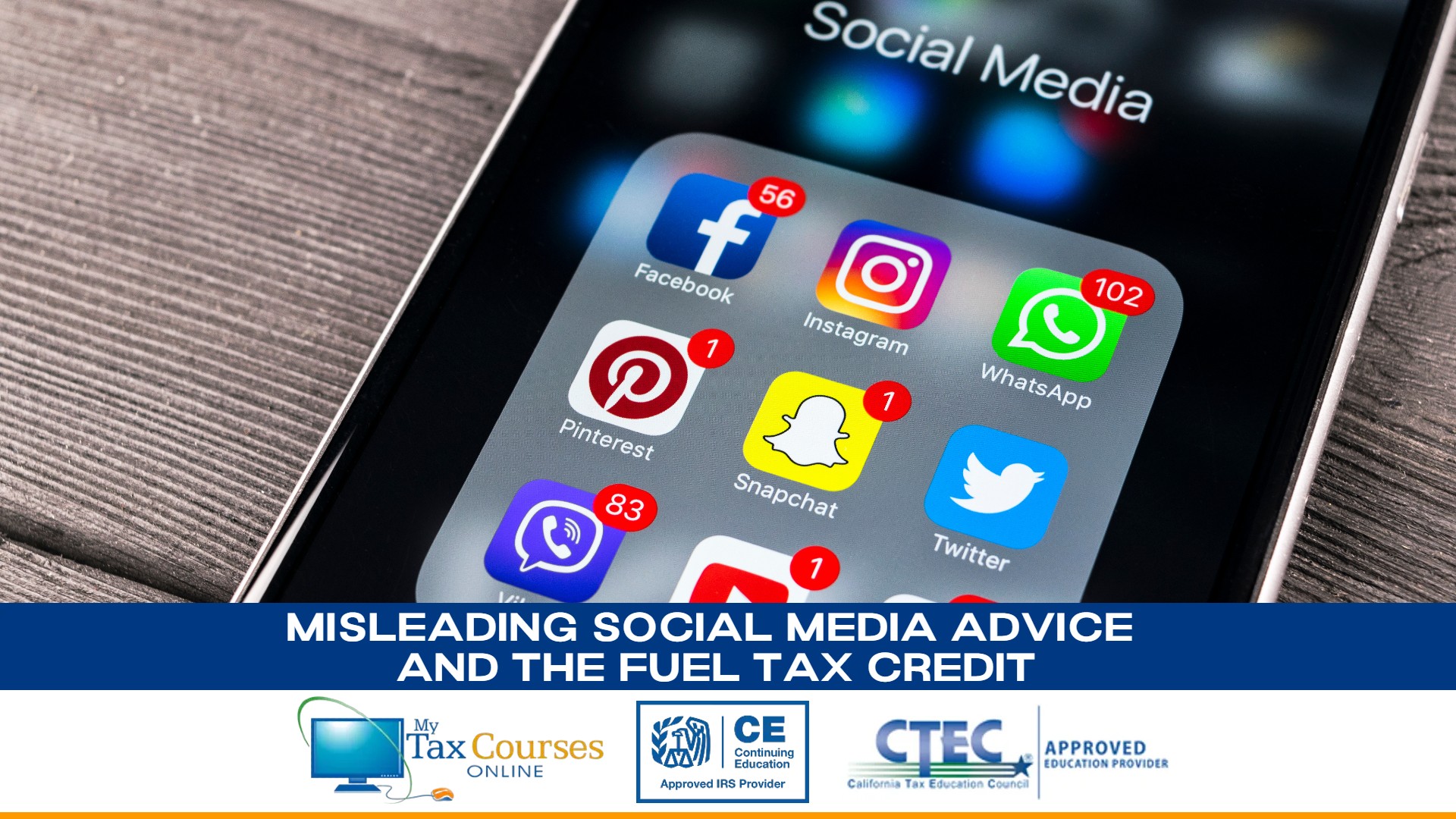The Internal Revenue Service (IRS) has issued alert IR-2024-139, highlighting a rise in tax scams and misleading social media advice that have resulted in inflated refund claims. As a tax preparer, it’s crucial to stay informed about these fraudulent activities to safeguard your clients. Here is a comprehensive overview of the Fuel Tax Credit scam, the potential risks, and steps you can take to protect your clients.
Understanding the Fuel Tax Credit Scam
The Fuel Tax Credit is designed for specific non-taxable fuel uses, such as off-highway business, farming, aviation, and commercial fishing. However, the IRS has seen a surge in fraudulent claims where taxpayers, often misled by social media advice and “ghost preparers,” attempt to claim this credit without eligibility.
Key Points of the Scam:
- These social posts encourage taxpayers to claim the Fuel Tax Credit for personal vehicle use or other non-qualifying purposes.
- This scam often targets individuals filing Form 1040 who are unaware of the specific criteria for this credit.
- Claims made without proper eligibility can lead to significant penalties and legal repercussions.
Risks and Consequences
Filing a fraudulent claim for the Fuel Tax Credit can have severe consequences. The IRS is increasing compliance efforts and scrutinizing such claims closely.
Potential Risks Include:
- Under the Internal Revenue Code (IRC) 6702(a), frivolous claims can result in a $5,000 penalty per return. This penalty applies to each spouse on a joint return.
- The IRS may conduct a compliance audit, requiring taxpayers to provide documentation to verify their eligibility for the credit.
- Knowingly filing false tax returns can lead to criminal charges, fines, and imprisonment.
The Role of Social Media
Social media has become a breeding ground for tax misinformation, with many taxpayers falling victim to false advice. The IRS is aware of several hashtags and topics promoting fraudulent schemes, leading to a spike in dubious claims.
Important Reminders:
- Encourage clients to verify any tax-related information they find on social media with a reputable source.
- Inform clients about the risks of following unverified social media advice.
How to Protect Your Clients
As a tax preparer, you should ensure your clients file accurate and compliant tax returns. Here are some steps you can take:
- Clearly explain the specific criteria for claiming the Fuel Tax Credit. Make sure clients understand that it is not for personal vehicle use.
- Inform clients about the potential penalties and legal issues associated with filing false claims.
- Ensure clients provide proper documentation to support their claims. This includes fuel receipts and proof of business-related use.
- Conduct a thorough assessment to verify that clients meet all criteria for the Fuel Tax Credit.
The IRS has provided a set of FAQs to address common questions related to these scams. Click here to learn more.




